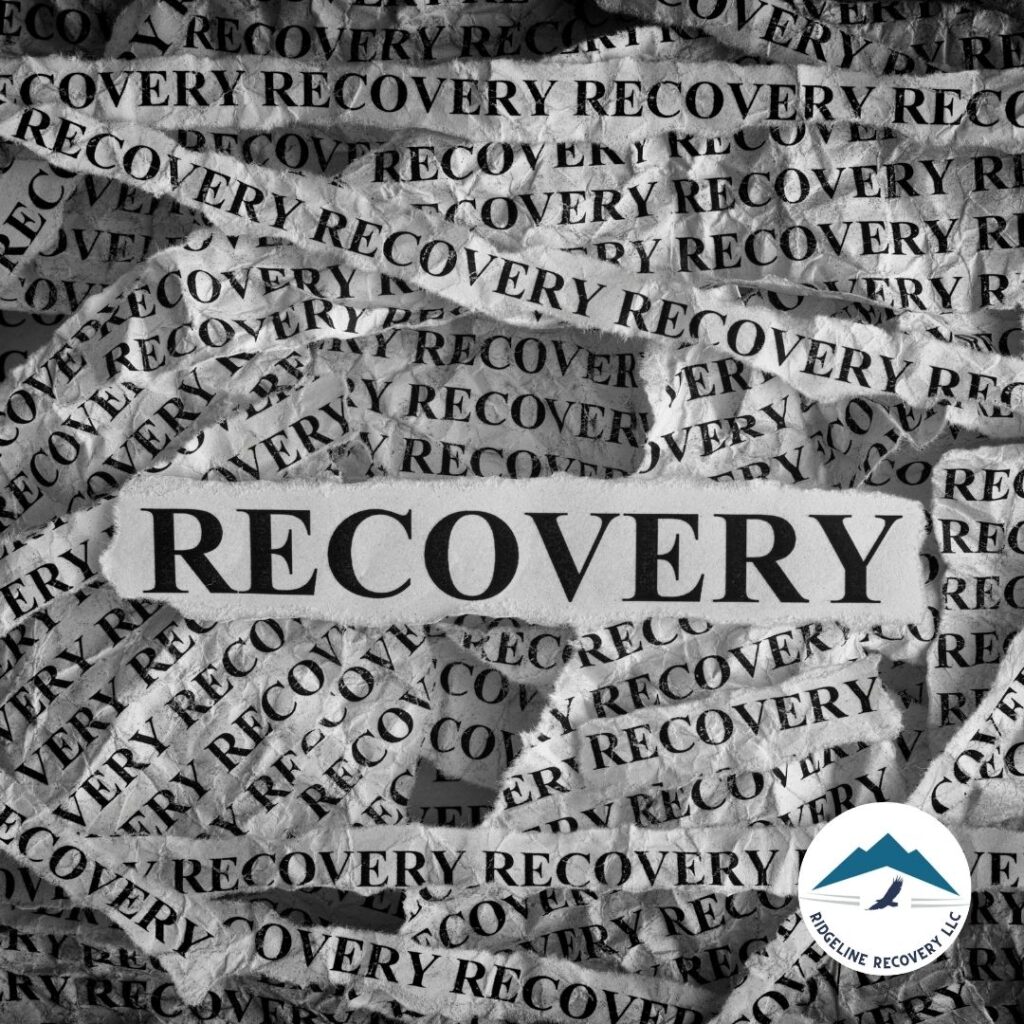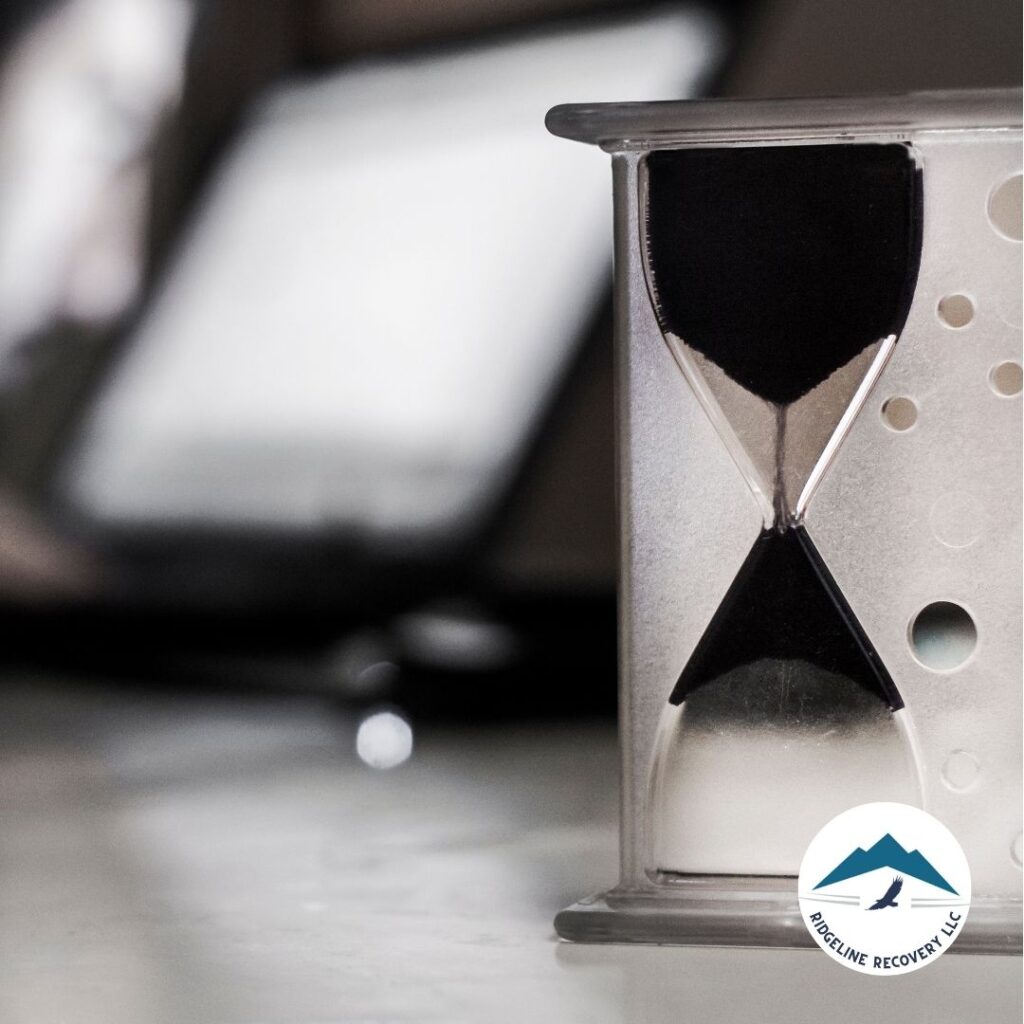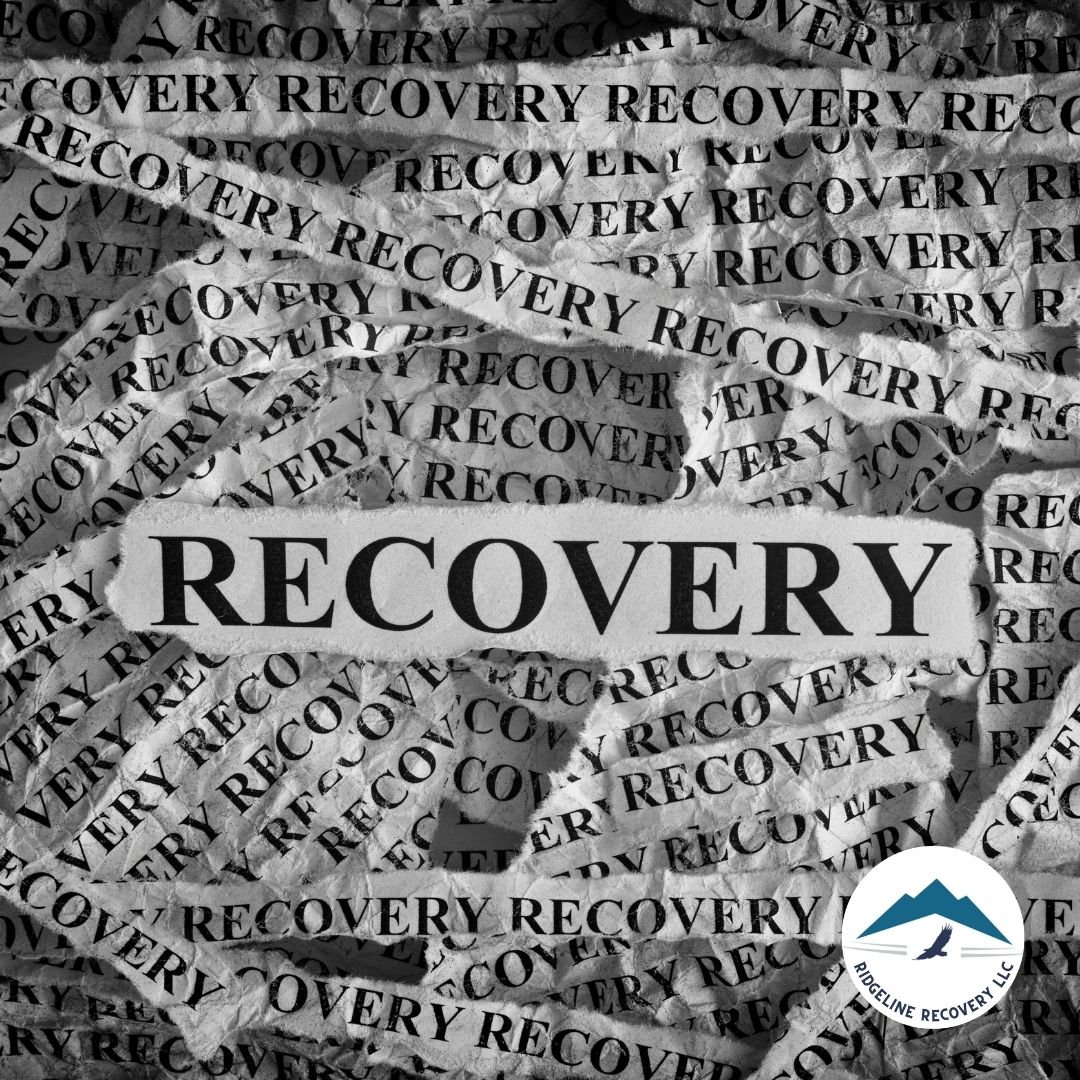Facing the Motivation Challenge in Recovery
Starting addiction treatment Columbus Ohio is already a huge achievement, but staying motivated? That’s a whole other ballgame. The excitement, the commitment—it can all fade when reality sets in. But here’s the good news: it doesn’t have to. Whether you’re starting at a substance abuse rehabilitation facility, or you’re knee-deep in the process, there are proven ways to keep that fire alive.
Let’s break down how to stay motivated, avoid common pitfalls, and embrace the strategies that actually work.
Why Motivation Wavers: What’s Really Going On?
It’s normal for motivation to fluctuate. In recovery, that can feel like getting swept off your feet when you’re finally standing. So why does motivation dip? Here’s what usually happens:
- Post-Acute Withdrawal Symptoms (PAWS): Even if you’ve tackled the immediate withdrawal, lingering effects can sneak in. These symptoms can mess with focus, sleep, mood, and energy levels—making recovery feel like a fight even after the detox phase.
- “Pink Clouding” and the Crash: Early recovery might give you a high, like a “pink cloud” of hope and excitement. But once the routine settles in, so does the challenge. Realising that recovery is a long game—not a quick win—can shake up that initial enthusiasm.
- Facing Triggers in Real-Time: It’s easy to feel motivated in a controlled environment, but what about when you’re back in your neighborhood, dealing with familiar faces, or facing stress? Motivation can fade fast when you’re constantly confronted with triggers.
- The Weight of Expectations: Setting impossible expectations can be like tying weights to your ankles. Over time, the pressure can turn motivation into frustration.
The 5 Key Principles to Maintain Motivation
1. Set Achievable Goals
Sure, everyone wants to think big. But in recovery, big dreams are broken down into small, doable steps. Rather than aiming for “total transformation overnight,” commit to one new healthy habit a week. Why?
- It builds confidence.
- It creates a sense of accomplishment.
- It’s sustainable.
Maybe you decide to check in with a mental health therapist near me once a week. Or you commit to a routine visit at Vivitrol clinics near me. Achievable goals build momentum, which builds motivation.
2. Use the Power of Accountability
Don’t go solo. Seriously. Accountability is a game-changer, and there are so many ways to build it:
- Sober Living Houses: Some people need that bridge between rehab and real-world independence. A sober living house near me provides community, accountability, and structure.
- Group Therapy: It’s one thing to work on recovery alone, but group sessions bring in different perspectives and support.
- Check-ins with loved ones, a sponsor, or a mentor.
The more people you have checking in, the less likely you are to drift off-track.
3. Structure Your Days
If you leave your schedule wide open, it’s easy to fall back into old habits. When you’re busy, you’re focused, and when you’re focused, you’re not fixated on cravings.
Consider these routines:
- Daily Morning Routine: Start with something consistent. A workout, reading time, meditation—it sets the tone.
- Dedicated Therapy Days: Make it a habit to visit mental health clinics near me or an addiction therapy near me location regularly. This keeps therapy part of your life, not just a crisis solution.
- End-of-Day Reflection: Look back on the day. Track small wins and recognize them. Progress isn’t always big and flashy—it’s consistent.
4. Stay Connected to Your “Why”
Why did you enter addiction treatment Columbus Ohio in the first place? What were you running from, and what are you running toward? Whether it’s better health, restoring relationships, or simply finding a life beyond addiction, keep that “why” in your sights.
Quick Tip: Write down your “why” somewhere visible, so you’re constantly reminded.
5. Seek Out Inspiration and Education
Recovery is like training for a marathon. You need to know your stuff—what works, what doesn’t, and how others succeed. Look for resources:
- Books on Recovery: Whether it’s memoirs of people who’ve made it through or practical guides on the twelve steps in the twelve-step program, educate yourself.
- Podcasts and Videos: There’s a wealth of material out there, including experts who break down everything from AA Step 3 to managing Ativan withdrawal symptoms.
- Workshops: Some recovery centers, especially the best addiction treatment Columbus, Ohio facilities, offer skill-building workshops. They could be on managing cravings, understanding delirium tremens, or practicing new coping mechanisms.
Building Your Support Network in Columbus, Ohio
Recovery isn’t a one-person job. And when you’re in Columbus, Ohio, there’s a network of people and resources to keep you on the path:
Types of Support Systems Available
- Addiction Therapy Services: Sometimes you just need a neutral party, someone trained to guide you.
- Mental Health Services Near Me: Recovery is more than physical. Mental health therapists near me can address underlying trauma, depression, or anxiety that fuels addiction.
- Vivitrol Clinics Near Me: For some, medication-assisted treatment (MAT) can stabilize the process. Vivitrol can reduce cravings, giving you the space to focus on therapy.
- AA Homegroups: Alcoholics Anonymous offers a place for people facing similar struggles. Try a local AA homegroup; it might be the perfect community fit.
Leveraging Your Environment to Stay Motivated
Take advantage of what’s around you. Familiar places can be triggers, but they can also be powerful motivators if you know how to use them.
- Check out local sober activities: Columbus has a growing sober community. From art classes to fitness groups, these are sober spaces where you can reconnect with life’s joys.
- “People, Places, Things” Rule: Sometimes, certain people, locations, or objects are tied to your past. Recognize them, and be mindful when they pop up. Choosing new environments can create a safer mental space.
The Role of Physical Health in Recovery
Recovery isn’t just a mind game. Physical health is a huge component, whether it’s nutrition, exercise, or managing chronic conditions:
- Staying Active: Physical exercise, even as simple as a daily walk, releases endorphins. These are the feel-good chemicals that can naturally counterbalance withdrawal symptoms.
- Nutrition: Your body’s been through a lot. With a solid, nutrient-rich diet, you’ll start to feel more energetic and focused.
- Managing Medications: If you’re taking medications like Vivitrol, make sure you’re consistent. Medical support from Vivitrol clinics can help with adherence.
Building Resilience Against Relapse
Relapse isn’t failure. But it’s better to avoid it. A lot of people trip up because they don’t anticipate when they’re most vulnerable:
- Identify High-Risk Situations: Maybe it’s holidays, high-stress work weeks, or family gatherings. Recognizing your high-risk times lets you build a plan.
- Emergency Contacts: Have a few key people—your sponsor, a friend, a family member—on speed dial. Reach out before you fall into old patterns.
- Mindfulness and Meditation: These techniques teach you to pause before reacting. When cravings hit, mindfulness helps you ride out the wave without diving in.
Real Talk: Is Long-Term Recovery Possible?
It’s not about never having a craving again. It’s about handling those cravings when they come up. And the truth is, long-term recovery is possible—thousands of people in Columbus, Ohio alone are living proof. They’ve gone through inpatient alcohol rehab, used substance abuse rehabilitation centers, and come out the other side.
So when you doubt, look around. Recovery isn’t just surviving. It’s thriving. It’s not about who you were; it’s about who you’re becoming.
Building a Strong Foundation for Lasting Addiction Treatment Columbus Ohio

Creating a Personalized Pathway for Success
Each person’s journey in addiction treatment Columbus Ohio is unique, and a personalized approach makes all the difference. Creating a pathway that aligns with personal strengths, values, and goals can provide a sense of ownership and control over the recovery process. A customized treatment plan should include a mix of therapeutic approaches, peer support, and coping mechanisms that fit individual needs.
Benefits of a Personalized Recovery Plan
A tailored recovery plan ensures you’re not just another person in a program but a unique individual with a strategy that fits your specific situation. It offers:
- Targeted Therapy: Specialized counseling services that directly address underlying mental health issues or trauma.
- Flexible Scheduling: Options for day or evening programs at addiction treatment Columbus Ohio centers allow you to work recovery into daily life.
- Adaptability: Life is unpredictable, and recovery plans should adapt as you grow and your needs change.
Exploring Holistic Treatments in Addiction Treatment Columbus Ohio
Recovery isn’t just about abstaining from substances; it’s about healing your whole self. Holistic treatments provide a range of benefits, integrating physical, mental, and spiritual healing methods to support complete well-being.
Types of Holistic Therapies Available in Columbus, Ohio
- Mindfulness and Meditation: A powerful tool in addiction recovery, mindfulness teaches self-awareness and control. Practiced regularly, it can help manage cravings, regulate emotions, and reduce stress.
- Yoga and Physical Exercise: Exercise releases endorphins, naturally improving mood. Physical activity as part of addiction treatment Columbus Ohio can support better mental clarity, energy, and physical health.
- Nutritional Counseling: Nutrition is critical in recovery as substances deplete the body’s resources. Balanced nutrition helps restore energy, improves cognitive function, and enhances mood, supporting a smoother recovery journey.
Community Support and Addiction Treatment Columbus Ohio Programs
One of the greatest resources available in Columbus, Ohio, is community support. Connecting with others on similar journeys offers encouragement, insights, and motivation, making the challenges of recovery less isolating. Programs like Alcoholics Anonymous and Narcotics Anonymous provide structured support systems for those seeking ongoing accountability and growth.
The Role of Group Therapy in Building a Support System
Group therapy sessions allow participants to share their experiences, learn from others, and feel part of a community. This setting fosters open communication and empathy, which can ease feelings of shame or guilt often associated with addiction. Local centers, including addiction treatment Columbus Ohio, offer group therapy options tailored to specific substances, life stages, or challenges, enhancing the relatability of the group dynamics.
How Group Therapy Contributes to Lasting Recovery
- Reduces Isolation: One of the hardest parts of recovery is the loneliness that can come with it. Group settings combat this by surrounding you with peers.
- Provides a Sense of Belonging: Knowing there’s a network rooting for your success reinforces accountability.
- Encourages Self-Reflection: Hearing others’ stories often leads to personal insights, offering new perspectives on one’s own recovery process.
Family and Friends in Addiction Treatment Columbus Ohio
Family can play a critical role in addiction treatment Columbus Ohio, providing emotional support, encouragement, and stability. But family involvement should be handled carefully, as family dynamics can be both a source of support and a potential trigger for relapse. Understanding these dynamics and working together can make a huge difference.
Educating Loved Ones on the Recovery Process
Families and friends may not understand what recovery entails or the challenges it involves. Many centers in Columbus offer family therapy sessions to help loved ones better comprehend the journey, what to expect, and how to support without enabling.
Benefits of Family Involvement
- Strengthens the Support System: Having informed family members makes it easier to manage triggers and creates a healthier home environment.
- Encourages Open Communication: Family therapy fosters transparency and communication, allowing everyone to address unresolved issues and form healthier connections.
- Establishes Boundaries: Family involvement is most effective when there are clear, healthy boundaries in place, minimizing the risk of relapse-inducing conflict.
How to Navigate Friendships During Recovery
Friendships, especially if they were formed around substance use, may require careful reevaluation. It’s essential to form new friendships within sober communities or to reconnect with friends who support a substance-free lifestyle.
Tips for Managing Friendships
- Communicate Your Needs: Being open about your journey helps friends understand how they can best support you.
- Distance from Negative Influences: Some friendships may need to be put on hold, especially if they are linked to past habits or unhealthy behaviors.
- Engage in Sober Activities: Forming friendships through sober activities can provide a healthier alternative to old routines and introduce new, positive connections.
Navigating Triggers and Developing Coping Mechanisms
Triggers can appear at any time, from old friends to certain places. Recognizing these triggers and having a plan to manage them can help avoid relapse. A key focus in addiction treatment Columbus Ohio is teaching practical strategies for handling these moments.
Common Triggers in Addiction Recovery and How to Manage Them
- Environmental Triggers: Places associated with past substance use can bring up powerful cravings. Planning alternative routes or finding new routines can help avoid these triggers.
- Emotional Triggers: Emotions like stress, sadness, or loneliness can drive substance use. Cognitive Behavioral Therapy (CBT) is particularly effective in teaching individuals to understand and cope with these feelings without resorting to substance use.
- Social Triggers: Some relationships, even long-term ones, can be unhealthy in recovery. Setting boundaries or finding alternative social outlets is key to staying on track.
Creating a Relapse Prevention Plan
Developing a relapse prevention plan gives you a structured approach to recognize triggers, monitor warning signs, and employ coping mechanisms.
- Identify Warning Signs: Knowing early signs of relapse, like withdrawing from support or revisiting old habits, allows for proactive steps.
- Regular Therapy Check-ins: Continuing with therapy sessions, even after significant progress, reinforces long-term resilience.
- Have Emergency Contacts: Maintaining a list of trusted friends, family members, or therapists who you can call in a moment of weakness can make a difference.
The Role of Technology in Addiction Treatment Columbus Ohio
Advances in technology have introduced numerous resources to support recovery, from apps to virtual therapy sessions. In Columbus, Ohio, several treatment centers incorporate these digital tools, making recovery more accessible.
Apps and Online Tools for Recovery
- Recovery Apps: Apps like Sober Grid and WEconnect offer real-time tracking, motivation, and access to a recovery community.
- Teletherapy and Virtual Support: Many centers now provide teletherapy options, allowing for counseling sessions without needing to commute. This is particularly helpful for those with busy schedules or those living in rural areas.
- Educational Resources: Online platforms, podcasts, and videos provide insights into recovery strategies, stress management, and relapse prevention, accessible any time.
Advantages of Technology in Recovery
- Increased Accessibility: Digital tools bring support to you, wherever you are, making it easier to stay consistent with therapy.
- On-the-Go Support: Apps and online resources can offer immediate help when cravings strike or stress builds up.
- Broadened Community Access: Through virtual platforms, you can connect with a wider recovery community, accessing perspectives beyond your local area.
Spiritual Growth and Faith-Based Addiction Treatment Columbus Ohio
For many, faith and spirituality are vital components of the recovery journey. Faith-based programs in Columbus, Ohio, often incorporate prayer, meditation, and spiritual counseling into the recovery process, providing additional layers of support.
Benefits of Spirituality in Recovery
- Enhanced Sense of Purpose: Many find purpose and direction through spirituality, which can provide clarity and resilience.
- Strengthened Community Connections: Spiritual groups offer a sense of belonging, where individuals can find comfort, encouragement, and guidance.
- Healing Beyond the Physical: For those who see addiction as a battle that involves mental, physical, and spiritual health, spirituality addresses aspects that traditional methods may not fully cover.
Types of Faith-Based Programs in Columbus
- 12-Step Programs: Rooted in faith-based principles, these programs offer a structured approach, focusing on surrender, personal inventory, and spiritual growth.
- Faith-Specific Counseling: Counselors trained in faith-based approaches can offer a more personalized journey that aligns with spiritual beliefs.
- Support Groups within Religious Communities: Churches and other religious institutions in Columbus often host support groups specifically designed for those in recovery.
Mental Health Support in Addiction Treatment Columbus Ohio
Mental health support is critical to addiction treatment Columbus Ohio. Substance abuse often goes hand-in-hand with conditions like depression, anxiety, or PTSD, creating a cycle that can be challenging to break without comprehensive care.
Identifying Co-Occurring Disorders
Co-occurring disorders, or dual diagnoses, occur when someone faces both a substance use disorder and a mental health condition. These cases require specialized treatment that addresses both issues simultaneously.
Building Resilience in Addiction Treatment Columbus Ohio
Embracing Resilience as a Core Part of Recovery
Resilience is the backbone of a sustainable recovery journey, helping individuals bounce back from challenges and maintain their commitment to sobriety. In addiction treatment Columbus Ohio programs, resilience-building techniques focus on enhancing mental and emotional strength, equipping individuals to handle stressors and potential triggers effectively.
Key Strategies for Developing Resilience
- Cognitive Behavioral Therapy (CBT): CBT is widely utilized to help individuals identify and reshape negative thought patterns that contribute to addictive behavior. This therapeutic approach supports the cultivation of a resilient mindset, empowering patients to manage cravings and stay focused on long-term goals.
- Self-Reflection and Journaling: Recording thoughts, feelings, and daily experiences through journaling can be a powerful tool in understanding personal growth and challenges. Many addiction treatment centers in Columbus Ohio integrate journaling as a way for individuals to recognize patterns and celebrate progress, bolstering resilience over time.
- Setting and Achieving Small Goals: Setting incremental goals enables individuals to experience small wins, building confidence and a sense of accomplishment. As goals are reached, resilience strengthens, making it easier to tackle larger recovery milestones.
Innovative Techniques in Addiction Treatment Columbus Ohio
With advancements in technology and therapeutic methods, addiction treatment Columbus Ohio, continues to evolve, offering a range of innovative techniques to aid individuals on their path to recovery. These approaches provide additional tools for overcoming addiction and finding meaningful recovery experiences.
Virtual Reality Therapy
Virtual Reality (VR) therapy is emerging as a unique approach within addiction treatment Columbus Ohio. VR therapy immerses individuals in simulated environments where they can safely encounter triggers, practice coping strategies, and receive real-time feedback from therapists.
Benefits of Virtual Reality Therapy
- Realistic Scenario Practice: VR can simulate scenarios that might trigger substance use, such as social settings or high-stress situations, allowing individuals to practice their responses in a controlled setting.
- Enhanced Engagement: Many find VR therapy to be more engaging, as it provides a dynamic and interactive experience.
- Reduced Anxiety and Fear of Relapse: Exposure to triggering environments in VR can reduce the anxiety associated with facing these scenarios in real life, helping individuals feel more prepared and in control.
Biofeedback Therapy
Biofeedback uses real-time monitoring of physiological data, such as heart rate and breathing, to help individuals understand and manage their body’s responses to stress. Available at select addiction treatment centers in Columbus Ohio, biofeedback therapy empowers individuals to identify and control physical cues associated with cravings or stress.
Applications of Biofeedback in Addiction Treatment
- Stress Management: Biofeedback sessions train individuals to control physiological reactions to stress, reducing the likelihood of relapse.
- Improved Focus: By practicing mindfulness and regulating body responses, patients can enhance focus, which is particularly beneficial for individuals dealing with co-occurring mental health conditions.
- Empowerment through Self-Monitoring: Biofeedback gives individuals a deeper understanding of their body’s stress signals, enabling them to apply coping techniques more effectively.
Community Resources Supporting Addiction Treatment Columbus Ohio
In addition to structured treatment programs, community resources across Columbus play a vital role in reinforcing recovery efforts. Access to these resources can help individuals connect with ongoing support networks, find employment, and receive financial assistance when needed.
Employment Support Services
Securing employment can be a significant step forward in the recovery journey. Addiction treatment Columbus Ohio programs often collaborate with local organizations to help individuals gain essential job skills and find stable employment. Employment provides purpose, financial stability, and routine—all essential components in maintaining sobriety.
Notable Employment Resources in Columbus
- OhioMeansJobs Columbus-Franklin County: This service provides job placement assistance, resume-building workshops, and skills training for individuals re-entering the workforce.
- Recovery-Friendly Employers: Many companies in Columbus are recognized for their recovery-friendly policies, offering understanding environments where individuals in recovery can thrive professionally.
- Vocational Training Programs: Vocational programs offer training in fields like manufacturing, culinary arts, and technology, empowering individuals with marketable skills and increasing employability post-treatment.
Financial and Housing Assistance
For individuals newly out of treatment, financial and housing support is often critical. Various organizations across Columbus offer grants, rental assistance, and temporary housing to help stabilize individuals as they transition into independent living.
Key Financial Resources
- Columbus Coalition for the Homeless: This organization offers housing support and resources for those facing financial hardship, a common challenge for those in early recovery stages.
- Franklin County Department of Job and Family Services: Providing emergency cash assistance, food support, and Medicaid benefits, this department can assist individuals in managing financial challenges while focusing on recovery.
Long-Term Wellness Planning in Addiction Treatment Columbus Ohio

Sustaining recovery requires ongoing focus on mental, physical, and emotional wellness. A proactive approach to wellness planning allows individuals to create a balanced lifestyle that supports sobriety.
Physical Wellness and Nutrition
Physical health is a fundamental aspect of maintaining sobriety. Many addiction treatment Columbus Ohio programs emphasize nutrition and fitness as integral parts of recovery, helping individuals replenish and strengthen their bodies post-addiction.
Key Components of a Physical Wellness Plan
- Regular Exercise: Exercise not only improves physical health but also boosts mental well-being by releasing endorphins, which can help combat depression and anxiety.
- Balanced Diet: Substance abuse often depletes essential nutrients, leaving individuals malnourished. A balanced diet with ample vitamins and minerals can aid in physical recovery and restore energy levels.
- Sleep Hygiene: Quality sleep is crucial in recovery. Practicing good sleep hygiene, such as limiting screen time and creating a calming bedtime routine, helps improve mood stability and cognitive function.
Mental and Emotional Wellness
Mental health is closely linked to addiction recovery. Programs in Columbus Ohio support mental health through a range of therapeutic approaches, helping individuals build emotional resilience and cultivate a positive mindset.
Practices for Mental Wellness in Recovery
- Regular Therapy Sessions: Continued therapy sessions after initial treatment can provide an outlet for discussing stressors and developing effective coping mechanisms.
- Mindfulness Meditation: Practicing mindfulness can increase self-awareness and decrease impulsivity, which is helpful in resisting cravings.
- Art and Music Therapy: Creative therapies provide an outlet for expression and stress relief, offering alternative ways to process emotions.
Legal and Social Support Systems in Addiction Treatment Columbus Ohio
Navigating the legal challenges that sometimes accompany addiction can be a significant barrier to recovery. Many addiction treatment Columbus Ohio programs offer legal assistance and connections to support systems that can help with expunging records, managing probation, or understanding parental rights during recovery.
Legal Aid Resources
Legal challenges can arise in recovery, whether related to past offenses, child custody, or employment. Programs in Columbus often partner with legal aid organizations to offer affordable or pro bono legal support to individuals in recovery.
Common Legal Support Needs
- Expungement Services: Clearing a criminal record can improve employment prospects and open up new opportunities.
- Family Law Assistance: Legal aid can assist individuals seeking custody or visitation rights after completing treatment.
- Probation and Compliance Assistance: Navigating legal requirements during probation can be complex. Legal counselors guide individuals on compliance, reducing the risk of penalties and helping focus on recovery.
Faith and Spirituality in Addiction Treatment Columbus Ohio
For many individuals, faith plays a pivotal role in achieving and maintaining sobriety. Faith-based programs in Columbus provide an integrated approach that combines traditional treatment methods with spiritual guidance, creating a holistic environment for recovery.
Benefits of Faith-Based Addiction Treatment
Faith-based treatment offers spiritual support that many find vital in overcoming addiction. These programs often incorporate religious teachings, prayer, and meditation as ways to strengthen resolve and maintain sobriety.
Spiritual Support Resources
- Church-Based Support Groups: Many local churches offer support groups and outreach programs that reinforce spiritual growth during recovery.
- Faith-Based Counseling: Licensed counselors specializing in faith-based recovery provide guidance that aligns with spiritual values, offering support that is both professional and spiritually enriching.
- Meditation and Prayer Groups: Prayer and meditation are central to faith-based recovery, helping individuals cultivate inner peace and strengthen their connection to a higher power.
Aftercare and Continued Support in Addiction Treatment Columbus Ohio
Aftercare is a critical phase in recovery, providing the structure and support necessary to help individuals maintain sobriety. Effective aftercare programs in Columbus Ohio offer ongoing resources, including counseling, group support, and relapse prevention training.
Key Components of an Effective Aftercare Plan
- Regular Therapy: Individual therapy sessions provide a private space to discuss challenges and progress in sobriety, reinforcing coping mechanisms learned during treatment.
- Group Meetings: Continuing group meetings such as AA or NA provides accountability and fellowship, reminding individuals that they are not alone in their journey.
- Relapse Prevention Workshops: Workshops focusing on relapse prevention offer refresher courses on handling stress and recognizing early warning signs, keeping individuals equipped for long-term sobriety.
FAQs About Addiction Treatment Columbus Ohio
1. What are the main services offered at an addiction treatment center?
Addiction treatment centers offer detoxification, counseling, mental health services, sober living houses, and relapse prevention programs.
2. How do I find addiction therapy near me?
Search online for reputable therapy providers in Columbus, Ohio, and consult reviews or recommendations from local support groups.
3. What’s the difference between inpatient and outpatient programs?
Inpatient programs involve staying at a treatment center, while outpatient programs allow you to live at home while attending sessions. Inpatient is often more intensive and structured.
4. Can alcohol cause dementia?
Yes, long-term alcohol abuse is linked to conditions like alcohol-related dementia and Wernicke-Korsakoff syndrome.
5. What should I know about Vivitrol treatment?
Vivitrol can reduce cravings, making it easier to focus on recovery. Consult Vivitrol clinics near me for more information.
Conclusion: Embracing the Full Spectrum of Addiction Treatment Columbus Ohio
Effective addiction treatment Columbus Ohio requires a comprehensive approach that encompasses personalized care, resilience-building, and community support. By exploring a variety of treatment techniques, accessing legal and employment resources, and developing a well-rounded wellness plan, individuals are better prepared to achieve and maintain lasting recovery. With Columbus as a hub of supportive resources and innovative treatments, those struggling with addiction can find pathways to reclaiming their lives and creating fulfilling futures.
Call Us Now!
If you or a loved one is struggling with heroin or alcohol dependency, reach out to Ridgeline Recovery Center in Columbus, Ohio, today. At Ridgeline Recovery, we offer a path to hope and healing. Our comprehensive Addiction Recovery services include Addiction Therapy, Addiction Treatment, Vivitrol Clinic and specialized Mental Health Services designed to support your journey to recovery.
We provide Aftercare Programs and Peer Support to ensure you have ongoing assistance after treatment. Our dedicated team offers Case Management and Child Services for those needing extra support. For individuals who prefer a faith-based approach, we offer Faith-Based Recovery options.
Our programs feature Group and Individual Counseling, along with Medication-Assisted Treatment (MAT) to address your unique needs. We also have an Intensive Outpatient Program (IOP) and a Partial Hospitalization Program (PHP) for more structured care.
Our team includes Registered Nurse Services, Psychiatric Services, and Therapeutic Behavioral Services (TBS) to provide comprehensive support throughout your recovery process. We work with various Insurance Coverage plans to help you access the care you need.
Don’t wait—contact us now to start your journey toward a brighter future with Ridgeline Recovery.
For more stories and information Contact Us, visit our Blog page and Stories & Highlights.







